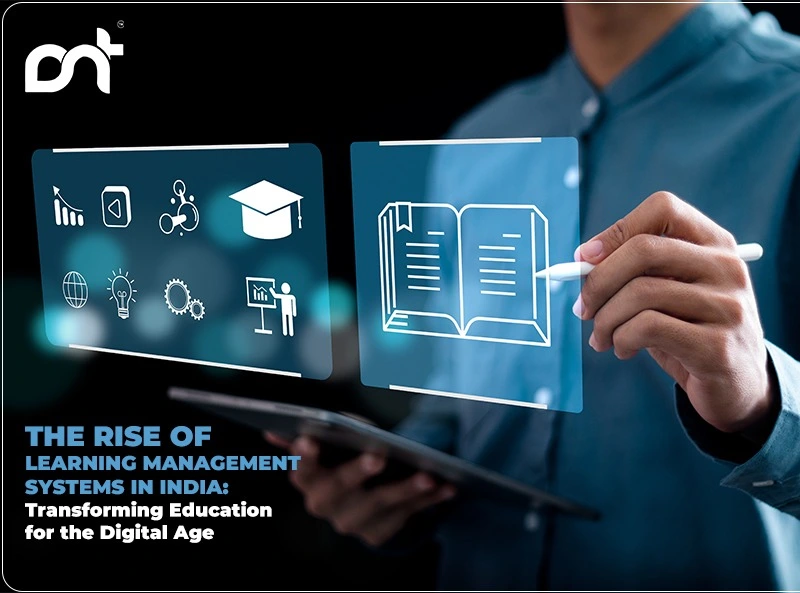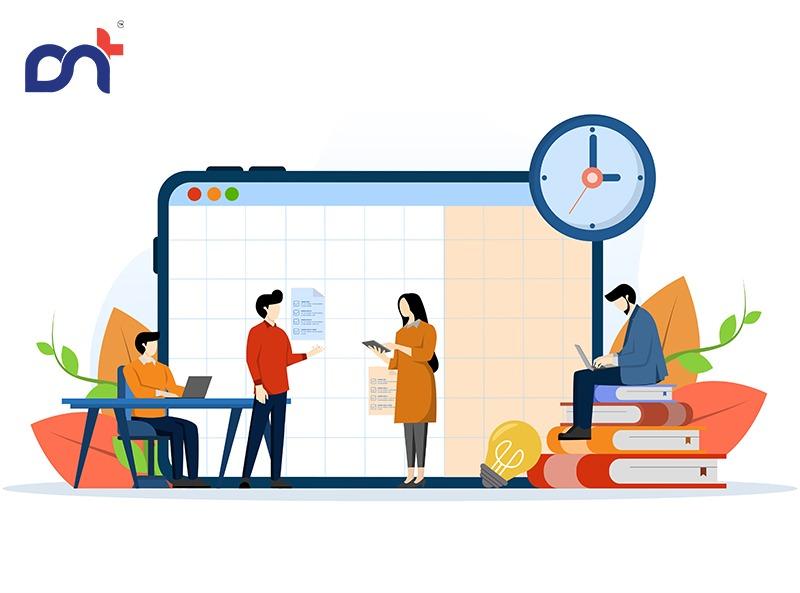


The educational landscape in India is undergoing a significant transformation, and at the forefront of this evolution is the increasing adoption of learning management system in India. Devant IT Solutions recognizes this pivotal shift and is committed to empowering educational institutions and organizations with cutting-edge LMS solutions tailored to the unique needs of the Indian market. This comprehensive guide delves into the factors driving the rise of LMS in India, the benefits they offer, key features to consider, implementation strategies, and how Devant IT Solutions is leading this digital revolution.

Several factors are converging to fuel the rapid adoption of learning management systems across India:
Growing Internet Penetration and Digital Literacy: With increasing access to affordable internet and a growing digitally literate population, online learning is becoming increasingly viable and accessible across the country.
Government Initiatives for Digital Education: The Indian government is actively promoting digital learning through various initiatives, creating a supportive ecosystem for the adoption of educational technology.
Need for Scalable and Accessible Education: India's large and diverse population necessitates scalable educational solutions that can reach learners in remote areas and cater to varying learning needs.
Demand for Personalized and Engaging Learning Experiences: Modern learners expect interactive and personalized learning experiences that cater to their individual pace and preferences.
Focus on Skill Development and Employability: With a growing emphasis on skill development and enhancing employability, LMS platforms provide effective tools for delivering vocational training and professional development programs.
The Impact of the Pandemic: The COVID-19 pandemic underscored the importance of robust online learning infrastructure, accelerating the adoption of LMS across educational institutions and corporate training departments.
Implementing a learning management system offers a multitude of benefits for educational institutions, organizations, and learners:
Centralized Learning Platform: An LMS provides a single, organized platform for all learning resources, including course materials, assignments, assessments, and communication tools.
Enhanced Accessibility and Flexibility: Learners can access course content anytime, anywhere, using various devices, promoting flexibility and convenience.
Personalized Learning Paths: LMS platforms enable the creation of customized learning paths based on individual learner needs, progress, and learning styles.
Improved Engagement and Interaction: Features like discussion forums, interactive quizzes, and multimedia integration foster greater learner engagement and collaboration.
Streamlined Administration and Automation: LMS automates administrative tasks such as enrollment, grading, attendance tracking, and report generation, freeing up educators' time.
Effective Assessment and Feedback Mechanisms: LMS facilitates the creation and delivery of various assessment types, along with timely feedback to learners, promoting continuous improvement.
Data-Driven Insights and Analytics: LMS platforms provide valuable data on learner progress, performance, and engagement, enabling educators to make informed decisions and optimize their teaching strategies.
Cost-Effectiveness: In the long run, an LMS can reduce costs associated with physical infrastructure, printing materials, and travel for training programs.
Scalability and Reach: LMS enables institutions and organizations to scale their learning programs to reach a larger audience without geographical limitations.
.jpeg)
When selecting a learning management software solution, it's crucial to consider the following key features:
User-Friendly Interface: An intuitive and easy-to-navigate interface is essential for both educators and learners.
Course Management Tools: Robust tools for creating, organizing, and managing course content, including multimedia integration.
Assessment and Evaluation Features: Options for creating quizzes, assignments, surveys, and providing feedback.
Communication and Collaboration Tools: Features such as discussion forums, messaging, and virtual classrooms to facilitate interaction.
Learner Management and Tracking: Tools for managing user profiles, tracking progress, and generating reports.
Mobile Accessibility: Compatibility with various mobile devices to enable learning on the go.
Integration Capabilities: Ability to integrate with other systems such as student information systems (SIS), HR management systems (HRMS), and video conferencing tools.
Security and Compliance: Robust security measures to protect data and ensure compliance with relevant regulations.
Scalability and Flexibility: The platform should be able to scale to accommodate growing user numbers and evolving needs.
Reporting and Analytics: Comprehensive reporting features to track learner performance and identify areas for improvement.
Devant IT Solutions understands the unique requirements of the Indian education sector and offers tailored learning management system solutions designed to empower institutions and organizations. Our LMS platform is built with a focus on:
Localization and Cultural Relevance: We ensure our LMS solutions are adaptable to the diverse linguistic and cultural context of India.
Affordability and Value: We offer cost-effective solutions without compromising on quality and functionality.
Scalability and Flexibility: Our LMS can scale to accommodate the needs of small schools to large universities and corporate enterprises.
User-Centric Design: We prioritize creating intuitive and user-friendly interfaces for seamless adoption.
Comprehensive Feature Set: Our LMS includes all the essential features for effective online learning delivery and management.
Robust Support and Training: We provide comprehensive support and training to ensure successful implementation and ongoing utilization of our platform.
Integration Capabilities: Our LMS can seamlessly integrate with existing educational and enterprise systems.
Focus on Security and Reliability: We prioritize the security and reliability of our platform to ensure data protection and uninterrupted learning experiences.
Devant IT Solutions is committed to being more than just a technology provider; we are your partner in transforming education for the digital age in India. We work closely with our clients to understand their specific needs and deliver customized LMS solutions that drive engagement, improve learning outcomes, and enhance administrative efficiency.
Implementing a learning management system effectively requires careful planning and execution. Here's a general step-by-step guide:
Define Your Needs and Objectives: Clearly identify your specific learning and training goals, target audience, and desired outcomes.
Evaluate and Select an LMS: Research different LMS platforms, compare features and pricing, and choose a solution that aligns with your needs and budget. Consider Devant IT Solutions for a tailored approach.
Plan Your Implementation Strategy: Develop a detailed implementation plan, including timelines, responsibilities, and resource allocation.
Content Migration and Development: Migrate existing learning content or create new digital learning materials optimized for the LMS.
User Training and Onboarding: Provide comprehensive training to educators, administrators, and learners on how to use the new LMS platform.
Pilot Testing and Feedback: Conduct pilot testing with a small group of users to gather feedback and identify any necessary adjustments.
Full Deployment and Launch: Roll out the LMS to the entire user base.
Ongoing Support and Maintenance: Provide continuous technical support, updates, and maintenance to ensure the smooth operation of the LMS.
Evaluation and Optimization: Regularly evaluate the effectiveness of the LMS and make necessary adjustments to optimize its performance and impact.
The learning management system landscape in India is constantly evolving. Some key trends to watch include:
Increased Adoption of AI and Machine Learning: AI-powered features such as personalized learning recommendations and automated feedback are likely to become more prevalent.
Greater Emphasis on Mobile Learning: With the increasing use of smartphones, mobile-first LMS design will be crucial.
Integration with Emerging Technologies: LMS platforms will increasingly integrate with technologies like augmented reality (AR), virtual reality (VR), and blockchain.
Focus on Microlearning and Gamification: Shorter, more engaging learning modules and gamified elements will enhance learner motivation.
Data Analytics for Deeper Insights: Advanced analytics capabilities will provide more granular insights into learner behavior and performance.
The rise of learning management systems in India represents a transformative shift in how education and training are delivered and consumed. Devant IT Solutions is proud to be at the forefront of this digital revolution, providing robust, tailored, and user-friendly LMS solutions that empower educational institutions and organizations across the country. By embracing the power of learning management software, India is unlocking new possibilities for accessible, engaging, and effective learning in the digital age. Contact us today to embark on your journey towards digital education excellence.